The following is a list of recipients of the various awards, prizes, and honors that have been conferred in 2020.
2020 Awards for Scholarly and Professional Distinction
Awards for Scholarly Distinction
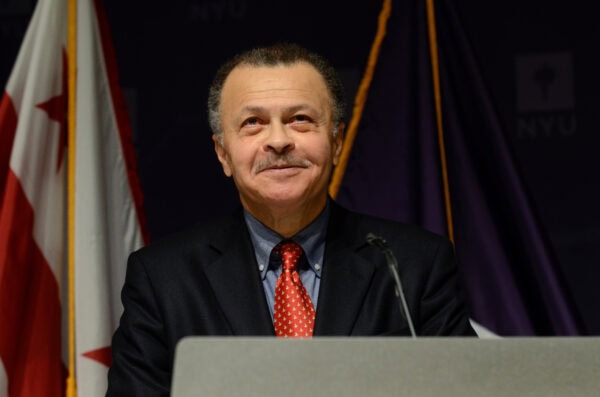
David Levering Lewis
David Levering Lewis, New York University
David Levering Lewis is Julius Silver University Professor and professor of history at New York University. His scholarly work ranges over millennia and continents. In his eight monographs, he has explored a wide variety of themes and individuals, in many instances synthesizing a massive amount of material and bringing to each project a fresh, bold perspective. He has received accolades in the form of a MacArthur Fellowship (1999–2004), the Bancroft Prize in American History, two Pulitzer Prizes (for his two-volume biography of W. E. B. Du Bois), and the Parkman Prize, among other awards. In 2009, President Barack Obama presented him with the National Humanities Medal.
Since 2003, Lewis has taught at New York University. He is perhaps best known for his biography of W. E. B. Du Bois, which is widely regarded as the standard, definitive study of this remarkable scholar-cum-activist. (Lewis’s winning two Pulitzers in back-to-back years in the same category—Biography—is a feat that has not been matched before or since.) At the same time, his scholarly reach is truly impressive, for he has made significant scholarly interventions in a number of seemingly disparate fields—for example, early 20th-century French anti-Semitism, African resistance to European colonialism, the Harlem Renaissance, and the life of Republican politician Wendell Willkie.
Lewis’s erudition, capacious scholarly reach, and brilliant contributions to the literature establish him as one of today’s most distinguished historians. He has enlightened audiences in and outside the academy on the history and meaning of ideologies, such as racism, and on the significance of social movements around the world through time.
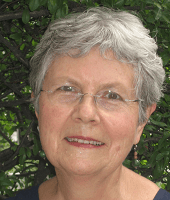
Leslie P. Peirce
Leslie P. Peirce, New York University
Leslie P. Peirce, a world-renowned Ottomanist, is Silver Professor and professor of history at New York University. She holds appointments in the departments of history and Middle Eastern studies.
Peirce’s major works include The Imperial Harem: Women and Sovereignty in the Ottoman Empire (Oxford Univ. Press, 1993), Morality Tales: Law and Gender in the Ottoman Court of Aintab (Univ. of California Press, 2003), and Empress of the East: How a European Slave Girl Became Queen of the Ottoman Empire (Basic Books, 2017). She has received a number of book prizes and scholarly grants. She has twice been awarded the biannual M. F. Köpülü Prize, the top prize in the field of Ottoman and Turkish studies, as well as a number of other awards, including the Albert Hourani Award for the best book in Middle East studies, given annually by the Middle East Studies Association. She has received grants from the American Council of Learned Societies, the American Philosophical Society, Fulbright, the Social Science Research Council, and the John Simon Guggenheim Foundation.
Peirce is a pioneering and resourceful interpreter of Ottoman texts and archival researcher (especially in Islamic court records). She has played a major, transformative role not only in the field of Ottoman history, but also in the history of women and gender in the Middle East. Her scholarship has compelled a reconsideration of Ottoman rule and dynastic practices, the role of the harem in elite Ottoman culture, and the way that the Ottoman administration worked with the court system to integrate disparate populations as the empire expanded. She has shown that gender was a key component of Ottoman governance, and that an understanding of the lives of ordinary people no less than elites is critical to the history of Ottoman expansion and administration.
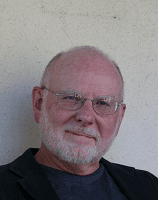
David Warren Sabean
David Warren Sabean, University of California, Los Angeles
David Warren Sabean is professor emeritus at the University of California, Los Angeles, where he held the Henry J. Bruman Endowed Professorship. After spending many years at the Max Planck Institute for History, then under the directorship of the late Rudolf Vierhaus, and a briefer sojourn at the University of East Anglia in the United Kingdom, he returned to the United States and held positions in the departments of history at the University of Pittsburgh and Cornell University, before moving to UCLA in 1993.
Sabean’s scholarly production is as prodigious as it is distinguished. His mixture of interdisciplinary insights and methods, principally anthropology, and range of subjects has influenced generations of historians. A sensitivity to the world of rural society and its workings characterizes his scholarship. It first became apparent in his dissertation on the Peasants War of 1525 but came to full fruition in several subsequent, now classic works. Power in the Blood (Cambridge Univ. Press, 1987) offered a model microhistory informed by anthropology, while his two-volume magnum opus on the Württenberg village of Neckarhausen—Property, Production, and Family in Neckarhausen, 1700–1870 and Kinship in Neckarhausen (Cambridge Univ. Press, 1990 and 1998, respectively)—analyzed the transformation of rural kinship from a clientage system to a consanguineal system of alliances through cousin-marriage. This duology was a tour de force of archival research. A series of edited and co-edited volumes soon followed. In addition, Sabean has long published on the topic of incest and cousin-marriage across centuries.
Sabean has held visiting and distinguished academic appointments at numerous institutes and universities in the United States and Europe, as well as having received major awards, including a John Simon Guggenheim Fellowship.
Honorary Foreign Member
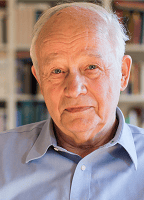
Hartmut Lehmann
Hartmut Lehmann, University of Kiel
Hartmut Lehmann is emeritus professor of modern history at the University of Kiel. As the inaugural director of the German Historical Institute in Washington, DC (1987–1993), he played a key role in establishing and maintaining the scholarly mission and integrity of the GHI. In addition to fostering the work of German and American scholars, he also forged connections with the US Holocaust Memorial Museum, the German Studies Association, and the Central European History Society. In 1993, he became the director of the Max Planck Institute for History in Göttingen, where he fostered German-American scholarly relations until his retirement from the MPI in 2004. He then returned to Kiel as Honorarprofessor, also serving in that capacity in Göttingen. Since then he has traveled repeatedly to the United States as a visiting professor at Emory University, Dartmouth College, the University of California, Berkeley, and the Princeton Theological Seminary. He has been and remains an international mentor to generations of American scholars of Germany.
In addition to his many accomplishments in furthering scholarly cooperation and intellectual exchange between the United States, Germany, and Europe, Lehmann’s scholarship in the field of religion and society is internationally respected. He opened the study of religion beyond the range of “church historians” by advocating for a chronologically and thematically expanded treatment of Pietism. His list of publications runs to many pages and is too long to summarize here. He has written numerous monographs and broad studies on religion, secularization, historical methodology, and religious plurality from a global perspective, published in English and German.
Eugene Asher Distinguished Teaching Award
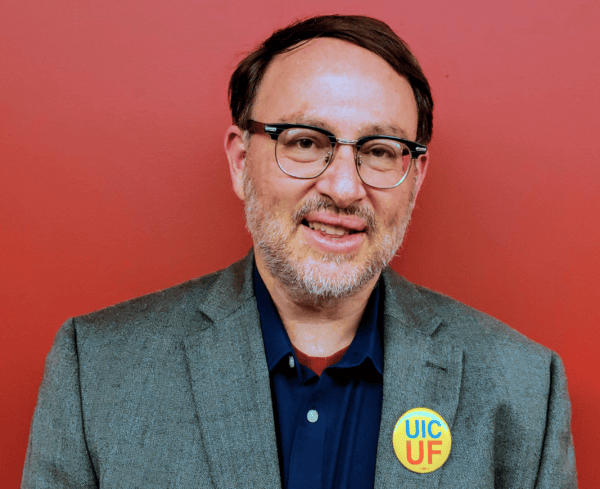
Robert D. Johnston
Robert D. Johnston, University of Illinois at Chicago
Robert D. Johnston is well regarded as a passionate advocate for the teaching and learning of history. Former students and current secondary educators note how he has challenged them to make the discipline meaningful and appealing to all constituencies. They praise his continuous mentorship. The timeliness of his research and his command of the material as a director of the Teaching of History Program at the University of Illinois at Chicago make him a model for everyone devoted to teaching historical thinking.
Equity Award
University of Nevada, Las Vegas, Department of History
The AHA Committee on Minority Historians is pleased to grant the 2020 Equity Award to the University of Nevada, Las Vegas, Department of History. UNLV is a Minority Serving, Hispanic Serving, and Asian American, Native American, Pacific Islander Serving Institution. The history department reflects this diverse student body: one-third of tenured and tenure-track faculty and one-third of graduate students come from communities of color and communities striving for more equitable access to the academy. This increasingly more diverse faculty has ensured student success and has placed students of color in the pipeline toward a more diverse professoriate and greater representation in cultural institutions.
Herbert Feis Award in Public History

Valerie Paley
Valerie Paley, Center for Women’s History, New-York Historical Society
The Center for Women’s History at the New-York Historical Society, under the direction of Valerie Paley, offers an innovative model for public history work, which demonstrates how historical organizations can build mutually beneficial partnerships with the academy to engage the public in cutting-edge, relevant, critical history. The work of the center extends from training in public history to exhibitions, salons, and writing groups, as well as online programming and courses that take advantage of new and emerging technologies.
Nancy Lyman Roelker Mentorship Award

Omnia El Shakry
Omnia El Shakry, University of California, Davis
Omnia El Shakry empowers her undergraduate students. Since 2002, she has used a cross-disciplinary approach in her work with honors, first-generation, and BIPOC students. As the embodiment of a true educator, she conveys to students the nuances of history in an engaging and rigorous manner, while providing them the institutional and professional knowledge necessary to succeed. El Shakry does so in a selfless manner, treating students as equals and advocating for their best possible futures.
2020 Awards for Publications
Herbert Baxter Adams Prize in European History
Alexander Bevilacqua, Williams College
The Republic of Arabic Letters: Islam and the European Enlightenment (The Belknap Press of Harvard Univ. Press)
In The Republic of Arabic Letters, Alexander Bevilacqua examines early modern Europe’s encounter with Islamic thought and writings. Elegantly conceived and rigorously researched, Bevilacqua’s writing reveals how European collectors and religious scholars who knew Arabic interpreted Islam and its place in world history for European audiences. Bevilacqua argues that an era of intense scholarly engagement (1650–1750) yielded ultimately to Enlightenment thinkers whose secular and political interpretations of Islam, while less well-informed, have continued to dominate Western thought.
George Louis Beer Prize in European International History
Emma Kuby, Northern Illinois University
Political Survivors: The Resistance, the Cold War, and the Fight against Concentration Camps after 1945 (Cornell Univ. Press)
Emma Kuby’s excellent study focuses on a fascinating group of actors, the International Commission against the Concentration Camp Regime, in order to investigate the group’s fight against concentration camps in Europe and the decolonizing world. She thus retrieves a neglected period in the history of memory, morality, and the aftermath of the Holocaust. Kuby’s story is not a heroic tale about the triumph of an idea but one that raises questions about what would have happened if the postwar human rights revolution had taken a different path.
Jerry Bentley Prize in World History
Toby Green, King’s College London
A Fistful of Shells: West Africa from the Rise of the Slave Trade to the Age of Revolution (Univ. of Chicago Press)
Toby Green’s magisterial account puts West and Central Africa at the center of the history of the modern world. A breadth of sources, multidisciplinary approach, and serious attention to oral history allow Green to address the tensions between regional and global history and history and economic theory. Spanning the 14th to the 19th centuries, the book puts Atlantic trade at its core to examine global divergence in the emergence of inequalities, racial hierarchies, and underdevelopment.
Albert J. Beveridge Award in American History
Jeremy Zallen, Lafayette College
American Lucifers: The Dark History of Artificial Light, 1750–1865 (Univ. of North Carolina Press)
With astonishing research and elegant prose, American Lucifers reconstructs the history of artificial lighting in the United States before 1865. Jeremy Zallen shows that Americans’ demand for brighter, more convenient light sources inspired new technologies at the expense of enslaved and child laborers, animals, and the environment. Spanning vast distances—from Argentina to England, from North Carolina to the South Pacific—Zallen tells a deeply human story about the hidden violence of global capitalism. A stunning achievement.
Paul Birdsall Prize in European Military and Strategic History
Brandon M. Schechter, NYU–Shanghai and the Harriman Institute of Columbia University
The Stuff of Soldiers: A History of the Red Army in World War II through Objects (Cornell Univ. Press)
Brandon M. Schechter explores the materiality of the Red Army in World War II and the construction of military and national identities, from the design of uniforms to the items Soviet soldiers carried and the trophies they took from their vanquished enemies. Inventive in approach, skillful in the use of diverse primary sources, and beautifully written, this first book deserves a wide readership from anyone interested in the experience of combat, survival, and soldiers’ homecoming.
James Henry Breasted Prize in Ancient History
Charles Sanft, University of Tennessee at Knoxville
Literate Community in Early Imperial China: The Northwestern Frontier in Han Times (SUNY Press)
The primary materials of Charles Sanft’s work are wooden writing strips left by soldiers posted on the northwestern frontier of Han China (206/2 BCE–220 CE). Sanft forges the concept of literate community, in which groups rather than individuals are the focus, and looks at all forms of interaction with texts. Thus, he avoids the narrow perspective of many approaches to literacy and favors non-elite, non-official engagement with texts and reading, including reading aloud by others, rather than writing.
Albert B. Corey Prize in Canadian-American Relations or History
Jamie Benidickson, Faculty of Law, University of Ottawa
Levelling the Lake: Transboundary Resource Management in the Lake of the Woods Watershed (UBC Press)
Jamie Benidickson’s intricate and layered analysis of resource development and environmental governance in the Lake of the Woods watershed moves gracefully across the different jurisdictional boundaries that crosscut this Canadian-American region. This thoroughly researched book underscores the environmental, legal, and human dimensions of the efforts to develop and regulate the land and water in Ontario, Manitoba, and Minnesota and brings to life the contests among stakeholders at the local, regional, and national levels over environmental decision making.
Raymond J. Cunningham Prize for Undergraduate Journal Article
Jubilee Marshall, Villanova University (BA, 2019)
“Race, Death, and Public Health in Early Philadelphia, 1750–1793,” Pennsylvania History: A Journal of Mid-Atlantic Studies (Spring 2020)
At a time when Americans are once again debating the depths of structural racism, Jubilee Marshall investigates the intersection of African American burials and public health. She documents how severely limited burial options in the segregated section of the potter’s field were often the African American community’s last resort. Yet, within this oppressive structure, the author also finds agency among the living as they claimed public space, reshaped public health discourses, and navigated civil society.
John K. Fairbank Prize in East Asian History
Eiichiro Azuma, University of Pennsylvania
In Search of Our Frontier: Japanese America and Settler Colonialism in the Construction of Japan’s Borderless Empire (Univ. of California Press)
In Search of Our Frontier is an ambitious, far-reaching, and comprehensive study of Japanese and Japanese American patterns of migrations. Eiichiro Azuma creates an innovative framework that brings the histories of Japan, Asian America, migration, and empire into a single account full of unexpected encounters and provides a sophisticated transnational analysis constructed through the prisms of settler colonialism and race.
Morris D. Forkosch Prize in British History
Tawny Paul, University of California, Los Angeles
The Poverty of Disaster: Debt and Insecurity in Eighteenth-Century Britain (Cambridge Univ. Press)
Tawny Paul’s fascinating study transforms our understanding of the making of the British middle class. In contrast to narratives about rising incomes and an expanding consumer society, Paul places gnawing financial insecurity and fear of the debtor’s prison at the heart of class formation. Attentive to gender, emotion, embodiment, and regional variation, her book is methodologically sophisticated and engagingly written; it vividly illuminates the lives and relationships of the 18th-century middling sort.
Leo Gershoy Award in Western European History
Margaret E. Schotte, York University
Sailing School: Navigating Science and Skill, 1550–1800 (Johns Hopkins Univ. Press)
Margaret E. Schotte’s Sailing School: Navigating Science and Skill, 1550–1800 is a vivid account of changes in navigational instruction with the spread of printed works and greater understanding of mathematics and the cosmos. Erudite and highly engaging, Sailing School provides a fresh view of the Scientific Revolution from the perspective of pilots and sailors in training and on the seas, whose practical learning gave way to specialized technical skills and calculation.
William and Edwyna Gilbert Award for the Best Article on Teaching History
Rien Fertel, writer; Elizabeth S. Manley, Xavier University of Louisiana; Jenny Schwartzberg, Historic New Orleans Collection; and Robert Ticknor, Historic New Orleans Collection
“Teaching in the Archives: Engaging Students and Inverting Historical Methods Classes at the Historic New Orleans Collection,” The History Teacher 53, no. 1 (November 2019)
The four authors document the ways in which a local historical collection worked with secondary- and college-level history courses using a flipped or inverted classroom. Solidly grounded in the literature of teaching and learning, the article offers an easily replicable model of working with archives and museums by both secondary and college courses. The authors provide some early assessments of their challenges and successes as well as newer understandings they gained from their interactions with the student participants in the program.
Friedrich Katz Prize in Latin American History
Marixa Lasso, Ministerio de Cultura de Panamá
Erased: The Untold Story of the Panama Canal (Harvard Univ. Press)
Marixa Lasso’s Erased is subversive history at its best. Engaging specialists and non-specialists alike, Lasso carefully examines how US officials (with Panamanian authorities’ complicity) destroyed dynamic, bustling, mercantile communities in the canal zone and replaced them with segregated, sterile towns modeled on a projection of tropical wilderness. Poignant narration and pointed analysis, based on an array of oral and written sources and the author’s own experiences, bring alive a lost world of global cosmopolitanism, Black republicanism, and Latin American modernity in the isthmus of Panamá.
Joan Kelly Memorial Prize in Women’s History
Saidiya Hartman, Columbia University
Wayward Lives, Beautiful Experiments: Intimate Histories of Riotous Black Girls, Troublesome Women, and Queer Radicals (W. W. Norton & Co.)
Saidiya Hartman brings the vibrant, beautiful, complicated lives of Black women and girls out of an archive of loss, erasure, and absence. Wayward Lives is unflinching, perceptive, and daring. Hartman is committed to the archives, but her approach overcomes the limits of both archives and of scholarship that viewed Black females as social problems. Wayward Lives shows how Black women’s interior and exterior lives were lived on complex terms. With ambitions and talents, they experimented and created a culture that made “the uninhabitable livable.”
Martin A. Klein Prize in African History
Abena Dove Osseo-Asare, University of Texas at Austin
Atomic Junction: Nuclear Power in Africa after Independence (Cambridge Univ. Press)
Abena Dove Osseo-Asare offers a ground-shifting analysis of decolonization, nuclear power, scientific knowledge, and the Cold War focused on Ghanaian atomic aspirations from the 1960s to the present. In beautiful and accessible language, her riveting narrative innovatively weaves together ethnography, family history, scientific literature, and visual sources, plus over 50 interviews. Stressing the role of Africans as intellectual actors and producers of scientific, mathematical, and medical knowledge, she argues that Ghanaian scientific activities constituted a struggle for global “scientific equity.” This trailblazing study will engage historians and historical scholarship for some time to come.
Littleton-Griswold Prize in US Legal History
Sarah Seo, Columbia Law School
Policing the Open Road: How Cars Transformed American Freedom (Harvard Univ. Press)
Although often perceived as a symbol of American freedom, the automobile also functioned as a vehicle for the expansion of policing over the course of the 20th century in Sarah Seo’s masterfully written book. Drawing on key cases originating throughout the United States, Policing the Open Road demonstrates that judges have granted increasing authority to police officers making traffic stops and pursuing vehicular arrests, often inadvertently. Consequently, law enforcement officials enjoy unprecedented authority over all drivers today and, as Seo argues, practice discriminatory and unconstitutional policing on American highways and streets, to much of the nation’s dismay.
J. Russell Major Prize in French History
Joshua Cole, University of Michigan
Lethal Provocation: The Constantine Murders and the Politics of French Algeria (Cornell Univ. Press)
Joshua Cole’s deeply researched, beautifully writtenLethal Provocation demonstrates the role of imperialism and right-wing extremist French nationalism in the political violence long known only as “the Constantine Riots.” He combines careful attention to specific events and characters with an account of major transformations across time and space, but Cole also—by describing documents and reflecting on their interpretation—clearly shows how historians work. A major achievement, the book deserves a wide readership.
Helen & Howard R. Marraro Prize in Italian History
James Hankins, Harvard University
Virtue Politics: Soulcraft and Statecraft in Renaissance Italy (Harvard Univ. Press)
This eloquent, innovative, and persuasive book marks a significant milestone in the study of humanist political thought. Through lucid and sensitive parsing of neglected political writings by Italian Renaissance humanists, James Hankins uncovers a pedagogical project of remarkable breadth and consistency, one which draws on classical models to offer profound and insightful ethical lessons that remain all too relevant for our own day. Hankins’s magnum opus transforms our understanding of the “virtue politics” of the Renaissance.
George L. Mosse Prize in European Intellectual and Cultural History
Joan Neuberger, University of Texas at Austin
This Thing of Darkness: Eisenstein’s Ivan the Terriblein Stalin’s Russia (Cornell Univ. Press)
Joan Neuberger’s This Thing of Darkness is a beautifully written microhistory of Sergei Eisenstein’s unfinished cinematic trilogy Ivan the Terrible. By means of a wide variety of sources, from Eisenstein’s diaries and notes to archival materials, she ties in international and national politics to her analysis of the characters, content, and production of the film. Her brilliant analysis admirably demonstrates what happens to aesthetic theory and practice in the hands of a genius at an existential political moment.
John E. O’Connor Film Award
Documentary: Killing Patient Zero
Laurie Lynd, writer and director, and Corey Russell, producer (Fadoo Productions)
This engrossing documentary unfolds as a series of discoveries rather than a preshaped narrative. The film interrogates the widely circulated fiction that a single “patient zero” spread AIDS across the United States. With interviews of people who knew him and who lived through the horrors of the early years of AIDS, Killing Patient Zero demonstrates the power of oral history to show people in their full human complexity, explore different points of view, and debunk historical myths. Interweaving individual stories with broader historical themes, the film shows the importance of using historical research to evaluate and revise misleading narratives.
Dramatic Feature: Harriet
Kasi Lemmons, co-writer and director, and Debra Martin Chase, Daniela Taplin Lundberg, and Gregory Allen Howard, producers (Perfect World Pictures)
Based on the true historical figure, this beautiful and timely film tells the story of Harriet Tubman, who escaped slavery and then repeatedly returned alone to the dangerous territory dominated by slave owners to free scores more people from bondage. In sharp contrast to the narrative arcs of many feature films about African American history, Harriet centers Black and female agency. It presents Harriet Tubman as a courageous, intelligent, and compassionate woman with undisguised vulnerabilities. Through skillful acting and vivid sets and costumes, the film conveys complex issues regarding race, gender, class, and religion, all of which resonate with the present.
Eugenia M. Palmegiano Prize in the History of Journalism
Vincent DiGirolamo, Baruch College, City University of New York
Crying the News: A History of America’s Newsboys (Oxford Univ. Press)
In exploring the exigencies of the newspaper industry and capitalism’s exploitation of child workers, Vincent DiGirolamo’s meticulously researched study traces “young toilers in the cause of truth,” starting from the first anonymous enslaved boy who handed out the news in the American colonies through to the last youth newspaper hawkers found at the end of the “American Century.” DiGirolamo masterfully contributes to debates in childhood studies, labor and economic history, and media history.
James A. Rawley Prize in Atlantic History
Sophie White, University of Notre Dame
Voices of the Enslaved: Love, Labor, and Longing in French Louisiana (Omohundro Institute of Early American History and Culture and the Univ. of North Carolina Press)
Utilizing a treasure trove of slave testimonies from court records, this groundbreaking book illuminates the lived experiences of enslaved people in colonial Louisiana. Sophie White uses these testimonies to reconstruct the biographies of enslaved people at the microhistorical level, while also drawing especially from visual and material sources. The result is an imaginative work of scholarship that foregrounds the voices and lives of enslaved people, which are so often thought of as unrecoverable.
Premio Del Rey
Thomas W. Barton, University of San Diego
Victory’s Shadow: Conquest and Governance in Medieval Catalonia (Cornell Univ. Press)
Victory’s Shadow shows how the acquisition and integration of New Catalonia was a lengthy and nonlinear process built on previous failures, on contests among rulers, on negotiations with ecclesiastical and secular magnates, and on the fate of territory further afield. With impressive attention to local political and economic contexts and changes in policies and possibilities over two and a half centuries, the book is a marvelously fine-grained account of the mechanics and logics of conquest.
John F. Richards Prize in South Asian History
Sheetal Chhabria, Connecticut College
Making the Modern Slum: The Power of Capital in Colonial Bombay (Univ. of Washington Press)
Beautifully written and sparkling with critical insights, Making the Modern Slum takes us on a profound intellectual journey through the emergence of modern Bombay (now Mumbai), as British colonial administrators and Indigenous elites alike responded to periodic crises such as famines and plagues with a form of disaster capitalism, creating zones of exclusion—both internal and external—that demarcated the urban spaces housing the laboring and often transient poor as distinct from “the city” proper.
James Harvey Robinson Prize for Teaching Aids
Hasan Kwame Jeffries, Ohio State University
Understanding and Teaching the Civil Rights Movement (Univ. of Wisconsin Press)
This is a spectacularly relevant volume that deliberately addresses the teaching of the history of the Civil Rights Movement by topic, concept, and source material. Timely, well researched, and thorough, it is immediately useful to anyone who wishes to teach this history. Together, its 23 essays are designed to foster student learning by championing a pedagogical approach, highlighting and interrogating resources, and volunteering methods for complicating students’ assumptions and narratives.
Dorothy Rosenberg Prize in History of the Jewish Diaspora
Tamar Herzig, Tel Aviv University
A Convert’s Tale: Art, Crime, and Jewish Apostasy in Renaissance Italy (Harvard Univ. Press)
Following the travails of Salmone da Sesso, an Italian Jewish goldsmith and gambler who converted to Catholicism, Tamar Herzig’s meticulously researched microhistorical study takes its readers on a fascinating journey into mid-15th-century Italy’s elite society, exploring questions of apostasy and conversion, sexuality and gender, aesthetic creativity and social mobility, spirituality and worldly wealth. A virtuoso study of a virtuoso Jew, this book opens up the world of Renaissance Italy through multiple prisms and with exquisite details, based on deep archival research, intervenes in no fewer fields than art history, history of sexuality, business history, and, importantly, the conjoined histories of Judaism and Christianity.
Roy Rosenzweig Prize for Innovation in Digital History
Elaine Sullivan, University of California, Santa Cruz
Constructing the Sacred: Visibility and Ritual Landscape at the Egyptian Necropolis of Saqqara (Stanford Univ. Press)
The committee was particularly impressed by the use of 3D recreations to help site visitors better understand the role of monument visibility in royal and elite sacred landscape production in ancient Egypt. Committee members also appreciated the detailed reflections on the methods and technology employed in the project and the ways in which the project team documented both certainties and uncertainties in their recreations of the monumental landscape of Saqqara. Finally, the committee wishes to compliment Stanford University Press for its willingness to invest in new forms of digital historical scholarship.
Wesley-Logan Prize in African Diaspora History
Benjamin Talton, Temple University
In This Land of Plenty: Mickey Leland and Africa in American Politics (Univ. of Pennsylvania Press)
Benjamin Talton offers a remarkable study of Mickey Leland, former Black Power–era activist turned US congressman, who marshaled US humanitarian relief to address Marxist Ethiopia’s famine and food crises in other Global South countries. Grounded in Ethiopian and US political and resistance movements, Talton wonderfully weaves together a work of African diaspora, Black internationalism, and African American political histories to illustrate African American politicians’ influence on US involvement in African affairs during the 1980s.
Leslie P. Peirce’s image courtesy of New York University.
This work is licensed under a Creative Commons Attribution-NonCommercial-NoDerivatives 4.0 International License. Attribution must provide author name, article title, Perspectives on History, date of publication, and a link to this page. This license applies only to the article, not to text or images used here by permission.



